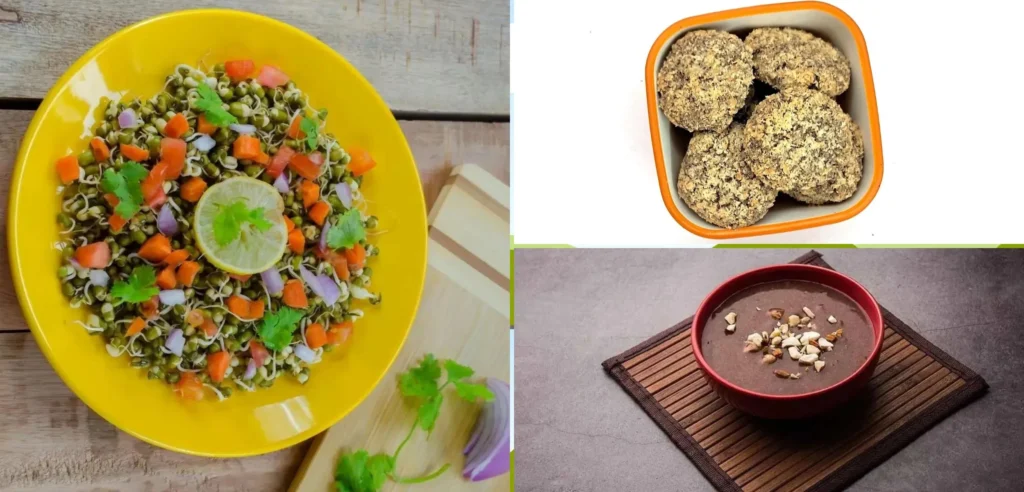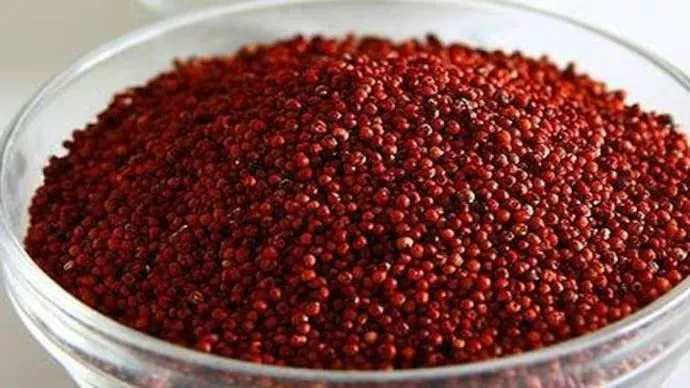Madua, also known as finger millets, has a long history dating back thousands of years. Originating from Africa It has since become a common ingredient in various societies around the world.
This gluten-free grain is valued for its nutritional content and toughness in harsh conditions, making it an important crop for centuries.
With its rich past and international importance, Madua continues to play an important role in many food and farming practices.
Understanding Madua’s Origin and History
Madua scientifically referred to as Eleusine coracana is a cereal that is gluten-free and is loved all over the world. The cultivation and consumption of this cereal span different regions around the world.
Since the beginning of time, Madua has been a food staple for people in Ethiopia and Uganda and has been praised because of its nutritional benefits and versatility.
Originating from Africa Madua’s cultivation has been able to expand beyond its origins to far-flung parts of the globe like Asia and America and is still being grown and admired for its durability and nutritional importance.
Nutrition Value of Madua
Madua’s unique nutrition profile is what makes Madua an excellent ingredient in any diet. It offers the most diverse array of minerals, vitamins, and fiber.
Its antioxidant-rich content helps reduce inflammation and oxidative stress, and the complex carbs offer continuous energy throughout the day.
The nutritional value of madua per 100g is:
- Energy: 336 Kcal
- Protein: 7.7 gm
- Fat: 1.5 grams
- Fibre: 11 gm
- Carbohydrates: 72.6 grams
- Calcium: 350 mg
- Iron: 3.9 mg
- Magnesium: 137 mg
- Phosphorus: 283 mg
- Manganese: 5.94 mg
- Potassium: 408 mg
Benefits of Madua Consumption for Thyroid Patients
1) Regulation of thyroid hormones
Certain compounds in Madua like flavonoids as well as phenolic acid are promising in positively impacting thyroid function.
The bioactive compounds have been proven to regulate the thyroid hormones, provide protection against thyroid disorders, and suggest the benefits of including Madua in your diet.
2) Increased energy levels
People suffering from thyroid disorders and hypothyroidism in particular, typically struggle with fatigue and low levels of energy.
Madua’s nutritionally rich profile, made up of B vitamins and complex carbohydrates provides energy for a long time helping to combat fatigue and improving overall well-being.
3) Metabolism Enhanced
Thyroid patients need to focus on maintaining a healthy metabolic rate because thyroid hormones play a vital part in regulating metabolism.
Madua’s low Glycemic Index and nutrition profile support metabolic health by encouraging healthy blood sugar levels, and increasing insulin sensitivity.
4) Recommended serving sizes for thyroid patients
It is essential to be moderate, especially for people suffering from thyroid disease in the event of adding Madua to their daily diet.
It is essential to evaluate your health and diet goals before adding Madua and making adjustments to the serving size and frequency in line with.
Consultation with an experienced registered dietitian medical professional is suggested to customize Madua intake to your requirements and to ensure that you have the best diet management.
How to Add Madua into a Thyroid-Friendly Diet
Madua Dishes is simple to add to the thyroid-friendly diet. Here are a few easy methods to eat the healthy grain.
- Madua Porridge – Cook Madua grains with milk or in other plant-based milk alternatives to have a delicious breakfast.
- Madua Salad – Combine cooked Madua, fresh vegetables, and a light salad dressing to create a healthy and delicious salad.
- Madua Flour-Baked Goods: Madua flour can be used in recipes for baking such as muffins and pancakes. It is a great gluten-free substitute for regular flour.

Addressing concerns and misconceptions
Madua’s influence on thyroid medication
A few people may have concerns about the possible interaction between Madua and thyroid medication.
There is evidence to suggest that taking Madua in conjunction with thyroid medication does not cause adverse side effects. It is essential to follow the advice of health professionals on dietary and medication decisions.
Potential Allergic Reactions
Although Madua is generally well-tolerated some individuals might have allergic reactions to its constituents.
The symptoms of Madua allergies could be characterized by swelling, itching, or stomach pain. If you experience these symptoms after taking Madua products, stop using them and consult a physician to determine the cause.



